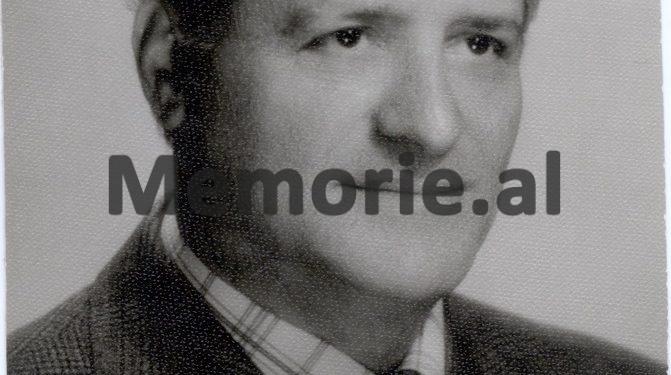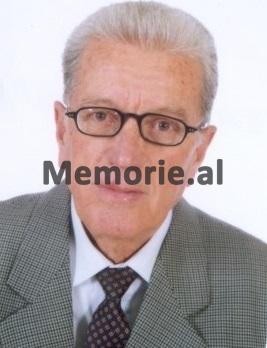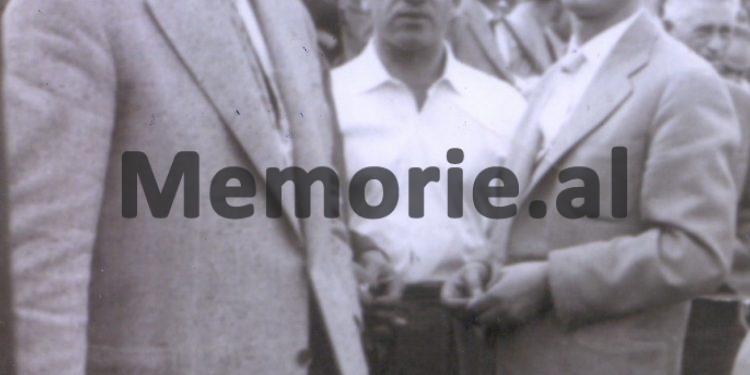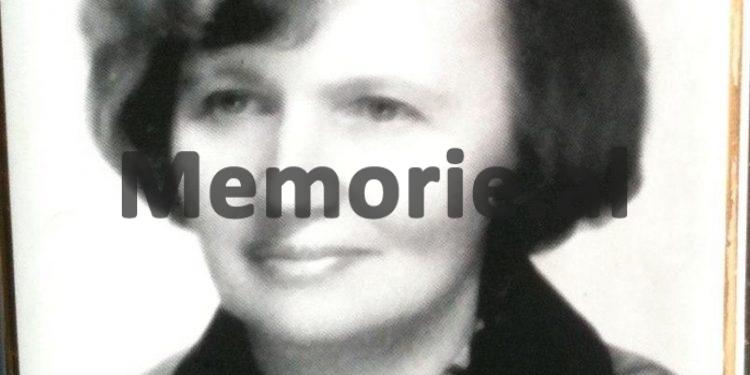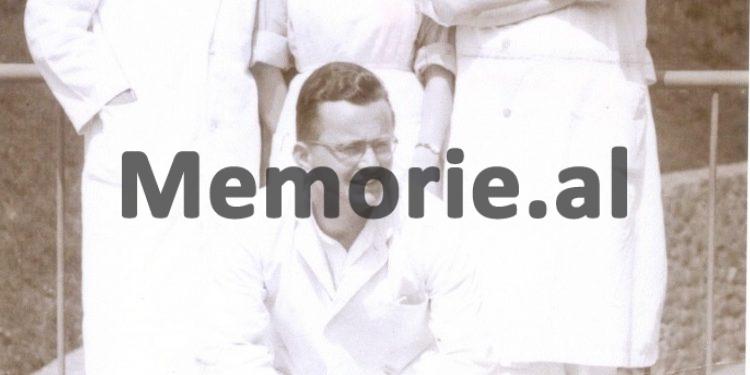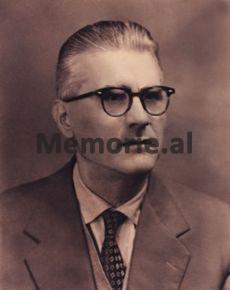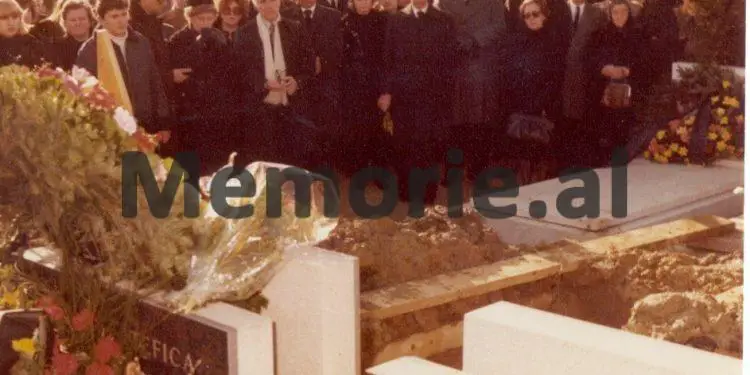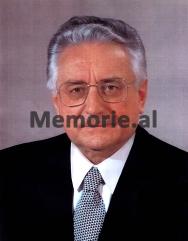Dashnor Kaloçi
Memorie.al publishes the unknown story of the Tirana boy, assistant to well-known surgeons, Dr. Loci and Frederik Shiroka, who after studying in Turin before the war, in 1947 was sent to study in Zagreb and after the breakdown of official relations between Tirana and Belgrade, he did not return home, but continued his studies and graduated from the Faculty of Medicine of the University of Zagreb. The 35-year career of Dr. Turdiu, the talented surgeon who ended his life away from home in 1982 with the longing for his homeland, in the evaluations and memories of his friends and colleagues, as well as the high considerations of former Croatian President Franjo Tudjman, who in a meeting with Turdi’s relatives expressed their deep gratitude to them for the services that Dr. Faik had done it to the Croatian people.
In recent days, after the appearance of this pandemic that has affected Albania and most of the world, on television screens we have seen many Albanian doctors who serve in various clinics around the world, giving their valuable contributions to this. the critical situation we are going through. But even before the 1990s, there were many talented Albanian doctors who, for various reasons, made their contributions abroad, and given this fact, the communist regime had denied these people, exercising over to the fierce class struggle and wrapping them in the darkness of silence in order to be forgotten forever in the homeland. One of these is Dr. Faik Turdiu, originally from Tirana, a wonderful surgeon, primarius of the main hospital in Zagreb, where he worked for 35 years.
Who was Faik Turdiu?
Faiku was born on April 11, 1919, in Tirana, in the Turdiu family, one of the oldest and most famous of this city, which has left its mark on the development of Albanian culture, education, and science. Many factors influenced Faik to defend his sense of citizenship and patriotism. He was born and raised in two families: Turdiu by his father and Llagami by his mother. There is no doubt that later the school years and the social circle exerted a positive influence, giving new space and meaning to these notions in him. From childhood onwards, when he was a student in elementary school, he displayed the sparks of promising intelligence, as well as curiosity and willingness to learn. He adored his two older brothers, Bilal and Qazim, and tried to become like them. Achieving their education would serve as an example of inspiration and increase their ambition to acquire knowledge. The years passed and Faik, energetic and tireless, finished the Tirana Gymnasium with high results and a beautiful dream: to become a doctor, because only in this field, he was convinced, he could give a lot to the people and the homeland. His father, Mahmud Turdiu, an authoritarian father in the family and with a clear view of boys’ education, fulfilled his wish. In 1940 he was sent to study medicine at the University of Turin. Then, three or four years of work came (1943 – 1947) as an assistant doctor at the Hospital of Tirana, near the famous surgeons, Prof. Locit (Italian) and Dr. Frederik Shiroka. These greatly appreciated Faik’s inclination and ability, even though he had not completed his medical studies. They kept him close and even entrusted him with difficult operations that he performed successfully. During those years, Faik often did not return home. He justified his absence from the family by saying that he was guarding the hospital’s surgery, but in fact he was treating wounded partisans who were hospitalized illegally.
Medical student in Zagreb
In September 1947 he was granted the right to complete his remaining studies at the University of Zagreb. In 1948, relations with the former Yugoslavia broke down. Faik’s friends sent him to study in his native countries to continue his studies, and he was told to return to Albania. He stayed in Zagreb and this permanently blocked his way to work in his country. It should be noted that Faik received all eight exams left unpaid in Turin and his diploma in Zagreb with the grade “verllo dobro” (very good) while continuing without interrupting his daily work in the hospital. Love for the homeland and compatriots wherever they were, this inherent feature of the true Albanian character, Faiku would preserve as the most precious thing in distant Zagreb, although separated alive by the bitter fate of the native land, by relatives, from friends and comrades, from people of blood and common language. In the circumstances that were created and being unable to donate the sweat, skills, and dedication to the sick of Albania, as he had dreamed, Dr. Faik linked his professional and humane future with the generous people of Zagreb, because a real doctor cannot have preferences or privileged patients. After all, medicine and the doctor, first of all, are humane and do not recognize state, national, racial, religious, etc. boundaries. Dr. Faik Turdiu loved the sick very much, he felt their pain and became one with them, no matter where they were or where they came from. There have been cases of him staying in the patient’s head for two more days, without being separated from him for a moment. Recognizing this feature of Dr. Faik was given a room in the hospital by the directorate. In particular, this gigantic and stoic, enjoyed extraordinary respect, reverence, and love among Albanians living in Zagreb and others who came from all over the former Yugoslavia. Muhamed Aliu, an Albanian living in Zagreb, worshiping Dr. Faikin expressed it by always holding a table reserved just for him. When Dr. In this pastry shop, all the present clients, Albanians and others, stood up to greet and honor him.
Dr. Turdiu in the memories of friends
The figure of the citizen and patriot of Faik Turdiu can be supplemented by some meaningful details such as the following: Hoping for the future development and progress of the country after the Second World War, he participated in 1946 in the first action of the youth Albanian for the opening of the road Kukës – Peshkopi as a simple volunteer and as a health specialist to provide medical assistance to shareholders. The daughter of his close friend, Syrri Muhaxhiri, who was born after a complicated operation, received permission to cut her hair (become a bride) and name her Shqype. Faik always kept the Albanian identity pure in heart and soul. This is evidenced by the national symbol, the red and black flag, which he always carried with him in a box of cold cigarettes, a gift from a friend with the dedication “Dr. Turdiu”.
Dr. Faik Turdiu worked with the devotion of a dedicated surgeon and with the feeling of Albanianism in his heart until he closed his eyes forever, alas not in his own country, but in Croatia, where his work was highly valued, even no less than it would be. precious in Albania. Faik’s life and work would be best suited to Dr. Lapidary’s memoir. Frederik Shiroka: “Even if surgery has no homeland, the surgeon does.” It took luck, then, for that to happen to Dr. Faik Turdiun, this missionary in the service of borderless surgery.
Dr. Faik Turdiu, the Honorable Primarius, was awarded with gratitude, kindness and the greatest respect by the citizens of Zagreb for his 35-year work, just as the well-known surgeon and talented orthopedist, the creator of modern Albanian traumatology, Dr. Nazmi Shehu from Gjirokastra, also this primarius for several years in the same hospital. For the admirable dedication to medicine, for the many successes of the scalpel of these great surgeons at work and simple in life, as well as for the contribution they gave to the friendship between the Albanian and Croatian peoples, I think the time has come for these two figures to eminent of our medicine to be immortalized in bronze to us and, our heart loves, even in Zagreb.
The time has also come for Albanian medicine to absorb and make its own scientific values and the valuable experience of all prominent doctors who worked in Albania and abroad, in an organized and institutionalized way through researchers. genuine and passionate.
Sudden death
Dr. Turdiu died suddenly at the age of 63: while working at the operating table, he suffered a myocardial infarction. Colleagues’ interventions to save him did not yield results, as the severe shock knocked him out of life after three days, on February 26, 1982. Until the day of the funeral, homage was paid to his coffin placed in the hospital premises. Memorial meetings were also held with scientific lectures by colleagues, etc. On March 2, the day of the funeral, dozens of patients gathered around his coffin who had felt the healing effect of his hand, colleagues, friends, dozens of Albanian friends rushing from Kosovo and other Albanian areas under the former Yugoslavia and others from the diaspora to pay their last respects and to accompany their beloved man.
At the head of the mortal cortege stood his brother, Ramazan Turdiu, with his wife, Margarita, who came specifically from Sh B A. And it was only these two who represented the Turdiu numerical family in this tragic escort. Next to them were city authorities, led by music bands, countless crowns, and speeches. Thus, Zagreb honored the honorable Albanian doctor with great honors.
But that did not happen in Faik’s beloved Tirana. As a result of the paradoxical political situation of the time, the closest people could not be found near him in the last moments and did not have the opportunity to participate in the funeral ceremony and throw a handful of Albanian soil in his grave. Here in Tirana, therefore, the black news spread among the relatives. The family did not dare to mourn and openly mourn her dear son, while the circle of friendship was afraid to comfort her, because Faik had been declared a “political fugitive”, an “enemy of the people.”
Tears of tears in the throats of loved ones quickly flowed one day over the grave of Ali (the brother who had died two weeks earlier), there in Shtish Tufina, in front of Faik’s photograph. After this event, for eight years in a row, Faik was covered in darkness: there was no information. Only in 1990, Mr. Syrri Muhaxhiri and some Albanians from Kosovo, brought valuable data and personal documents of Dr. Faik. In 1992, Ms. Jelena Turdiu, wife of Dr. Faik gave Faik’s brother Hasan a few items and relics from her husband during a trip to Zagreb.
Reviews
President Franjo Tudjman: Dr. We will not forget Faik because he served the Croatian people
For the famous Tirana surgeon, Dr. Faik Turdiu, have expressed their appreciation to many of his friends, colleagues, or even the highest personalities of the Croatian state, such as former President Franjo Tudjman, who among other things has expressed:
“Dr. Turdiu has served the Croatian people a lot; we will not forget it. ” (Franjo Tugjman, President of Croatia, opinion expressed by Mr. Hasan Turdiu at a meeting, Zagreb, 1992). “It is difficult and arduous that the way of life of our dear colleague and friend, Faik. Wanting to dedicate himself to medicine since his earliest youth, – he continues, – beaten by the whip of the fate of life and trying all its bitter weight, he set out on the road without returning from his homeland. , Tirana, and, passing through Turin and Rome, arrived in our Zagreb, where he also studied medicine. Selfless at work and, above all, conscientious at work, he performed his professional, human and humane duties responsibly. Engaged in surgery, living with the patient and his suffering, surgery became his preoccupation, the whole meaning of life and the content of life, and the house, – a small resting station. Although he always longed to leave the city where he was born, he became acquainted with the environment in which he worked and thus gained sympathy and respect. No one took this explosion of this southern man badly, because always in his last words the humanist, gentle and kind-hearted man appeared “- and further: -” he did not leave this city (Zagreb – T.L.). never even though there were many attractive offers. To this city, to his sick people, with his honest and tireless work, he devoted his whole life as much as he worked, all his mental and physical strength. While this city returned it with the full right of the citizen “.
(Dr. Shojat, Director of the Surgical Department of the “Dr. Josip Kajfesh” Hospital, Zagreb (From the speech held at the funeral ceremony)”.
For the small Albanian colony from Prizren had taken place in Zagreb, Dr. Faik was a central figure, a friend, a big brother, who healed and advised over and over again. It was also a source of pride… viewed by these Albanians as a living test of the Albanian intellectual ability… ”
(Prof. Sami Repishti. From the speech held on Radio “Voice of America”, March 1992).
“It’s been 10 years since primarius Turdiu was gone. We have not been able to replace it from a professional point of view. He was a master of the scalpel and other components of medicine. ”
(Opinion expressed by Mr. Hasan Turdiu by a surgeon, colleague of Dr. Faik, Zagreb, 1992).
“Dr. Faik Turdiu was a participant in many international conferences, presenting a scientific preparation with the lectures he gave on contemporary traumatological surgery, expressing the great experience in this discipline together with his work colleagues, who always listened and respected him”.
(Prof. Dr. Flamur Tartari. “Distinguished figures of Albanian medicine” 2, p. 93)
“After 10 years, with my heart heavy with the weight of worrying that I would meet Faik not alive, but covered with black marble, I threw on his grave, on behalf of the family, two handfuls of soil taken with me by Tirana to ease the weight of foreign soil, as well as a bouquet of Mimozash flowers, from Albania, which he loved so much “.(Hasan Turdiu. Impression from the visit to Zagreb in 1992)./Memorie.al




